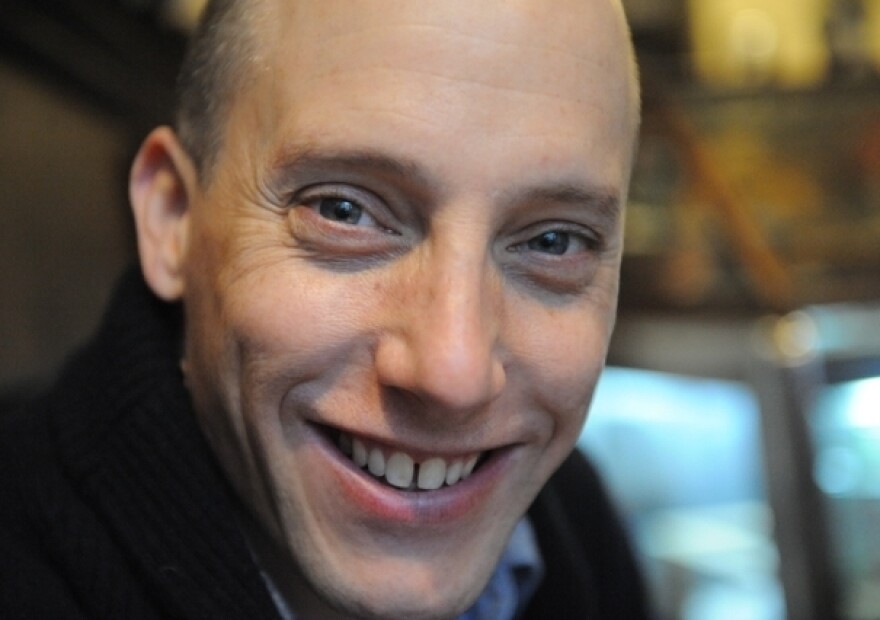"A pun is notoriously difficult to define, but it's a type of wordplay, and it takes many different forms," says John Pollack. "The most common type of pun is the humorous use of a word in such a way that because of its sound, you can interpret it in more than one way."
The definition of "pun" might be hard to put a finger on, but ask John Pollack, the 1995 O. Henry Pun-Off World Champion, for an example, and he'll have something like this at his fingertips:
"Knock knock.
"Who's there?
"Isabelle.
"Isabelle who?
"Is a bell necessary on a bicycle?"
If you groaned at that joke, you're not alone. Puns are sometimes cringe inducing — but sometimes they hit the funny bone at just the right place, and besides, the pun is actually the subject of serious academic study.
After he won the Pun-Off championship, Pollack put that penchant for verbal manipulation to work as a presidential speechwriter for Bill Clinton. But with his new book, The Pun Also Rises, he's returned to his longtime love.
"The brain goes through some incredible gymnastics to capture the meaning of puns," Pollack tells Weekend Edition Sunday's Liane Hanson. "And if you think about it, it's incredibly complex. Especially when two words can sound exactly alike."
Take that Isabelle knock-knock joke, he says.
"Your brain has to backtrack because you're thinking it's a name, and then it breaks apart the component syllables of that word, 'Isabelle,' and applies them with new meaning to a new situation."
With his championship-tested mind and high-profile pedigree, Pollack is just the person to defend the pun as wordplay that goes well beyond its frequent derision as the lowest form of humor.
"The power of a pun comes from two things," he says. "One is its ambiguity, and second is: that it enables you to pack more meaning, or more layers of meaning, into fewer words. And so if you're trying to convey complex ideas, puns can be really powerful tools to do that."
And they've been used to make political points since long before Pollack served under President Clinton. At the signing of the Declaration of Independence, Benjamin Franklin is quoted as saying, "We must all hang together or assuredly we shall all hang separately."
Almost every major language uses puns, Pollack says, but English is particularly friendly. Why?
"We're sort of a mutt of languages, which led to a lot of overlapping sounds and a lot bigger vocabulary with which to play. And that always makes for great punning."
In fact, the history of the form goes back at least as far as a 7th Century B.C. text about floods. Sanskrit, he adds, is rich with puns, and perhaps even the source of the word itself. In that language, he notes, "'Pundit' is the person who unpacks ambiguity, and 'pun' may come from the same root, although that's disputed."

The pun's long history might not be consolation to those who hate it when their dad jokes about "buns" every time he puts hamburgers on the grill, but hoping for puns to disappear is a losing game. To not pun at all, Pollack writes in The Pun Also Rises, would be more difficult than we can imagine.
"There are an infinite number of concepts to describe in this world," he tells Liane Hanson. "[But ] there are a very limited number of sounds. And so to use a limited number of sounds to describe an infinite number of ideas, there's bound to be phonetic overlap. Punning, therefore, is almost inevitable."
Copyright 2023 NPR. To see more, visit https://www.npr.org.


